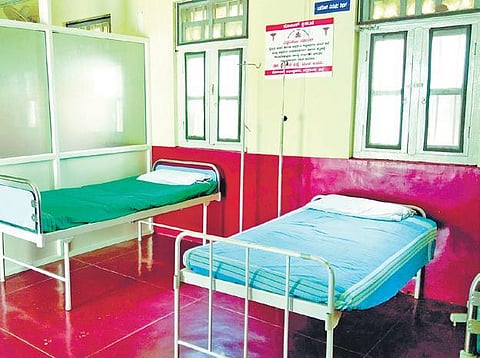

BENGALURU: CM Basavaraj Bommai’s maiden budget has bumped up the outlay for health by 17.54 per cent over last year, but experts have a mixed response to this. While a few call it a balanced budget, several feel the health outlay -- which is 5 per cent of the total budget -- is a marginal increase over last year and does not provide any room for urgently needed investments or to scale up ongoing interventions.
The budget could have had an outlay to stem the slide in ongoing programmes such as child immunisation, reproductive healthcare services and other disease control programmes that were impacted during the pandemic, say experts. Also, work on the ground should be reviewed and monitored.
“It is a good thing that the state has shifted its focus to non-communicable diseases. Cardiac-related treatment provided at the taluk level, and tying up with Jayadeva Hospital is a good initiative, setting up of Namma Clinics and aspirational taluks to identify health issues are great initiatives. But the key is to review and monitor,” said Dr. CN Manjunath, Director, Jayadeva Hospitals.
Dr. E Premdas Pinto, Faculty (Public Health), Azim Premji University, maintains that Karnataka already has 2,359 PHCs, 8,871 sub-centres and 146 taluk hospitals. “Why have separate Namma Clinics for non-communicable diseases and referral to specialists. Why don’t we strengthen urban family welfare centres to handle NCDs? Most NCDs do not require separate clinics or specialist management. Why invest in separate standalone clinics?”
Meanwhile, the recently published National Family Health Survey (NFHS-5) has revealed that there is a need in Karnataka to reduce infant mortality rate and maternal mortality rate, and the long-term effect of the pandemic may make it worse. Dr. Sylvia Karpagam, a public health doctor and researcher, says, “Government only says it will take all necessary steps to reduce MMR and IMR, but there is no mention of what action it will take, and what the budget is. Leaving it vague is not good practice.”
Converting government hospitals to teaching hospitals is a very good strategy if the management is not going to be a private player, argue experts. Free dialysis services should be set up in public facilities, they say. With widespread anaemia, there is an immediate need to focus on nutrition of both women and children. Several experts, including Dr. Das, say fortified rice is an unscientific approach, and locally grown food and egg are better options. “Instead of politicising the issue, nutrition aspects should be looked at,” he added.
Meanwhile, Dr. Sylvia says the government is investing Rs 93 crore on this, which is a waste of resources. “The government could instead subsidise milk, meat, fish, poultry and eggs. It is a good idea to have a nutrition survey done, but in a transparent manner by a reliable organisation, and not private entities,” she argues.
Dr. Giridhara R Babu, public health expert and epidemiologist, says Karnataka had constituted a ‘Health Vision Group’ under the chairmanship of Dr. Gururaj, ex-director of Nimhans. “Issues concerning PHC
services and strengthening public health systems were part of the vision group’s recommendations. We will wait and see if the government moots recommendations from the report.”